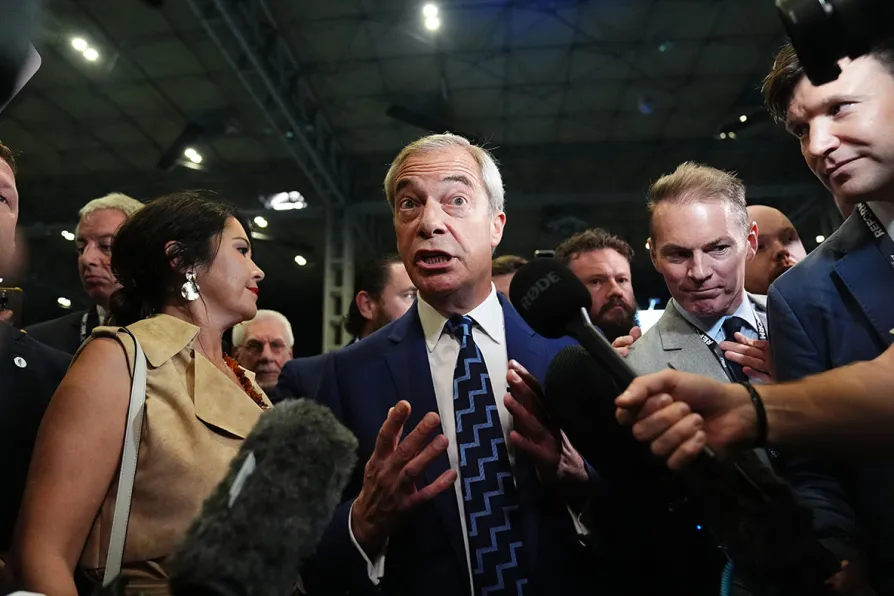
 Reform UK leader Nigel Farage arriving at the party's annual conference at the National Exhibition Centre in Birmingham, September 5, 2025
Reform UK leader Nigel Farage arriving at the party's annual conference at the National Exhibition Centre in Birmingham, September 5, 2025
NIGEL FARAGE predicted today that there would be a general election in the next two years, saying that challenges from the Greens and the new party led by Jeremy Corbyn and Zarah Sultana had left Labour in “deep in crisis.”
Speaking at the Reform UK conference in Birmingham, the party leader told activists that he would end the small boats crisis within a fortnight should he become prime minister.
He said: “We’re used to hearing stories of splits in the Conservative Party. We’re about to witness a big rift in the Labour Party too.
“Before long, there’ll be Labour MPs that reckon they’ve got a better chance on the [Corbyn-Sultana] sectarian ticket… They’ve got a better chance of being re-elected under that ticket, under Corbyn, than they do under Sir Keir.
“I think there is every chance now of a general election happening in 2027.”
Welcoming former culture secretary Nadine Dorries to the stage after she announced her defection from the Tories on the eve of the conference, he said that Zia Yusuf had been appointed as Reform’s head of policy.
“I will, in the next few weeks, open up a new department within the party, leaning on the experience that Nadine and others have — and others will come,” he said.
Responding to his speech, a Labour Party spokesperson said: “Nigel Farage could have used his conference speech to offer more than just anger without answers and to say more than just ‘don’t know’ to the problems facing the country.
“He didn’t. It was the same old parade of complaints we’ve heard before.
“His answer to the charge that Reform is a one-man band was to unveil a one of the faces of failure from the last Tory government: Nadine Dorries. Farage has proven again today that he is incapable of acting in the best interests of Britain.”
Former British army officer Robert Gallimore meanwhile branded Reform’s suggestion of paying the Taliban to accept migrants deported en masse “a vile perversion of what it is to be British.”
Mr Gallimore, who served in Afghanistan between 2007 and 2011, said that such an arrangement would mean people being sent “back to their torturers” and would be “like the Kindertransport in reverse,” referring to the rescue of children from Nazi-occupied Europe in the late 1930s.














